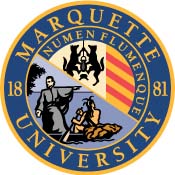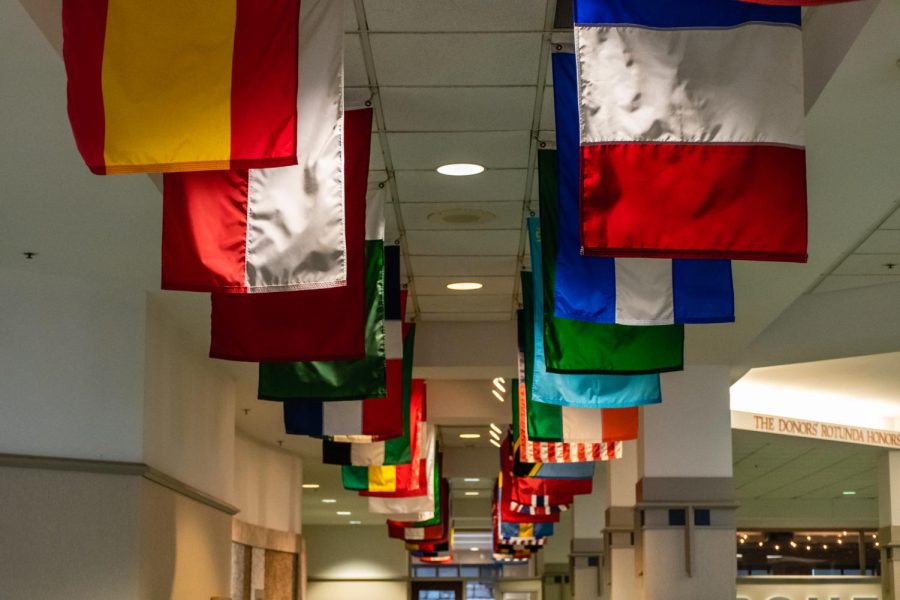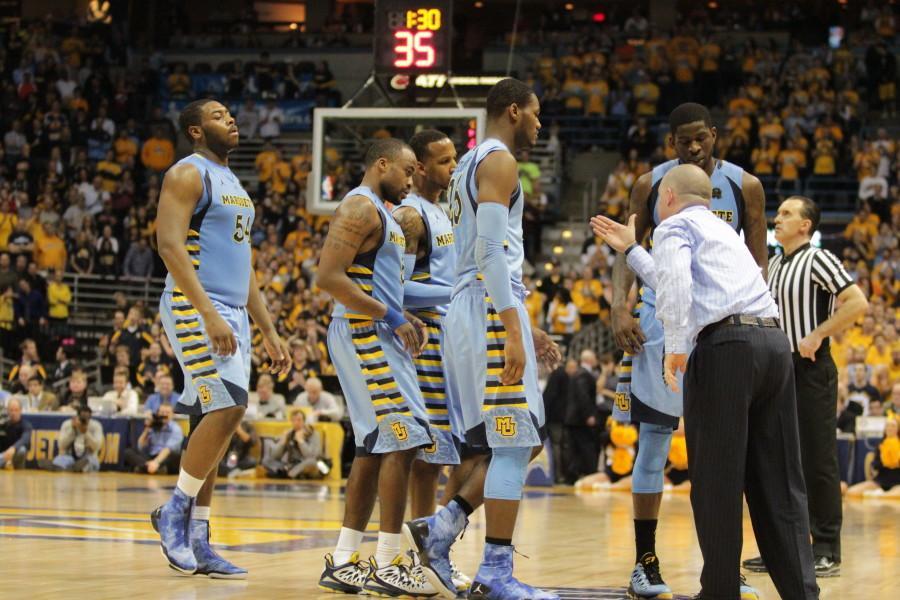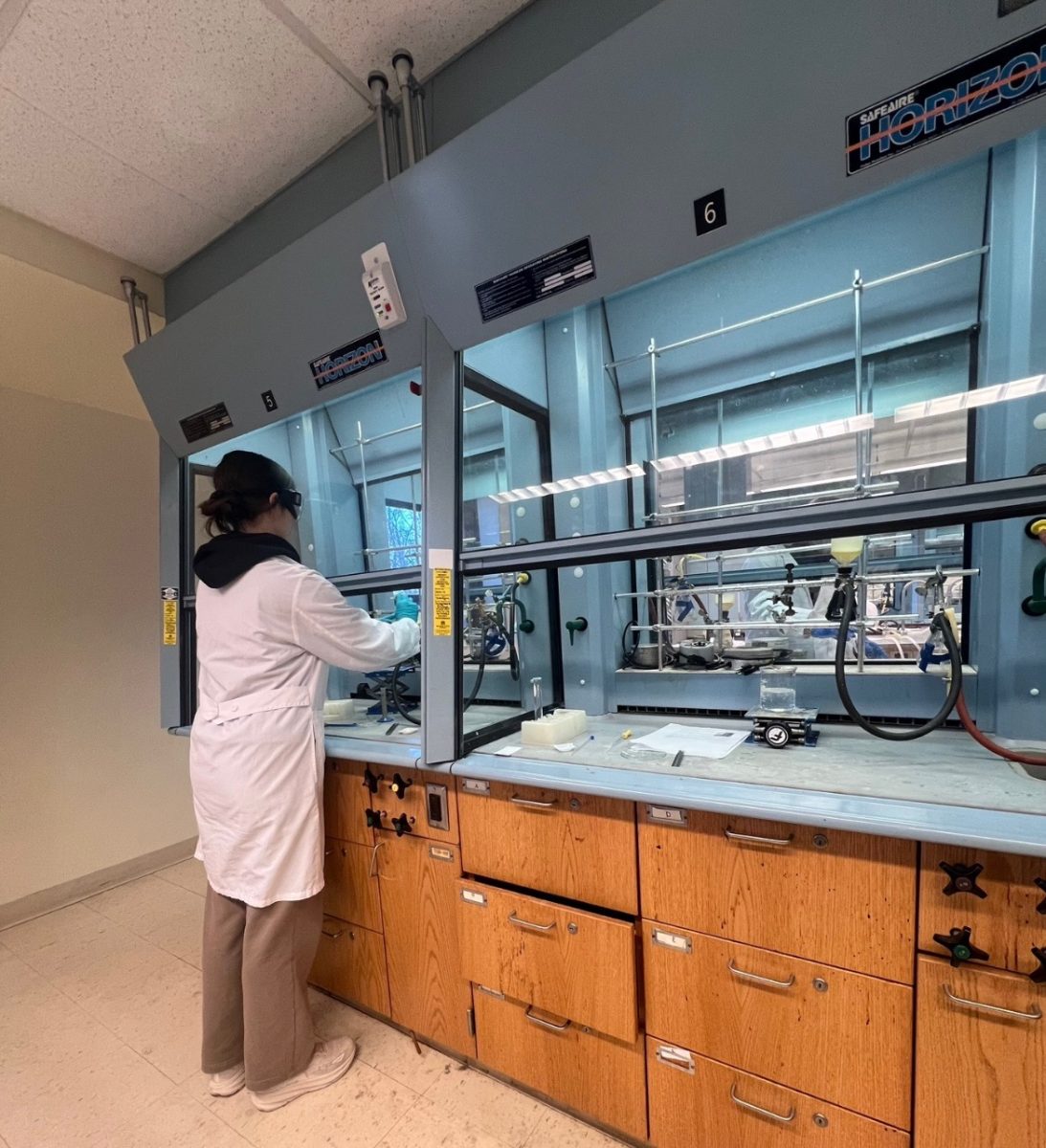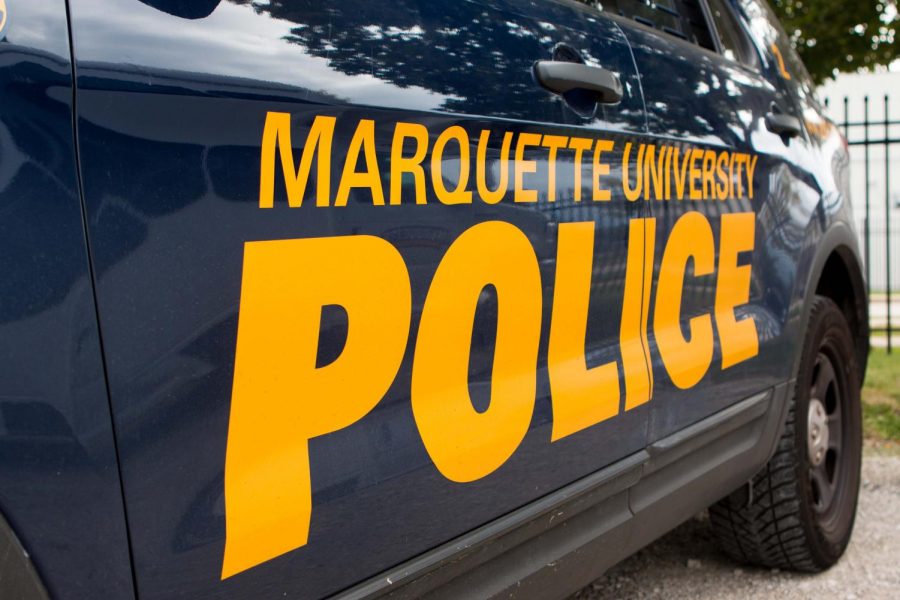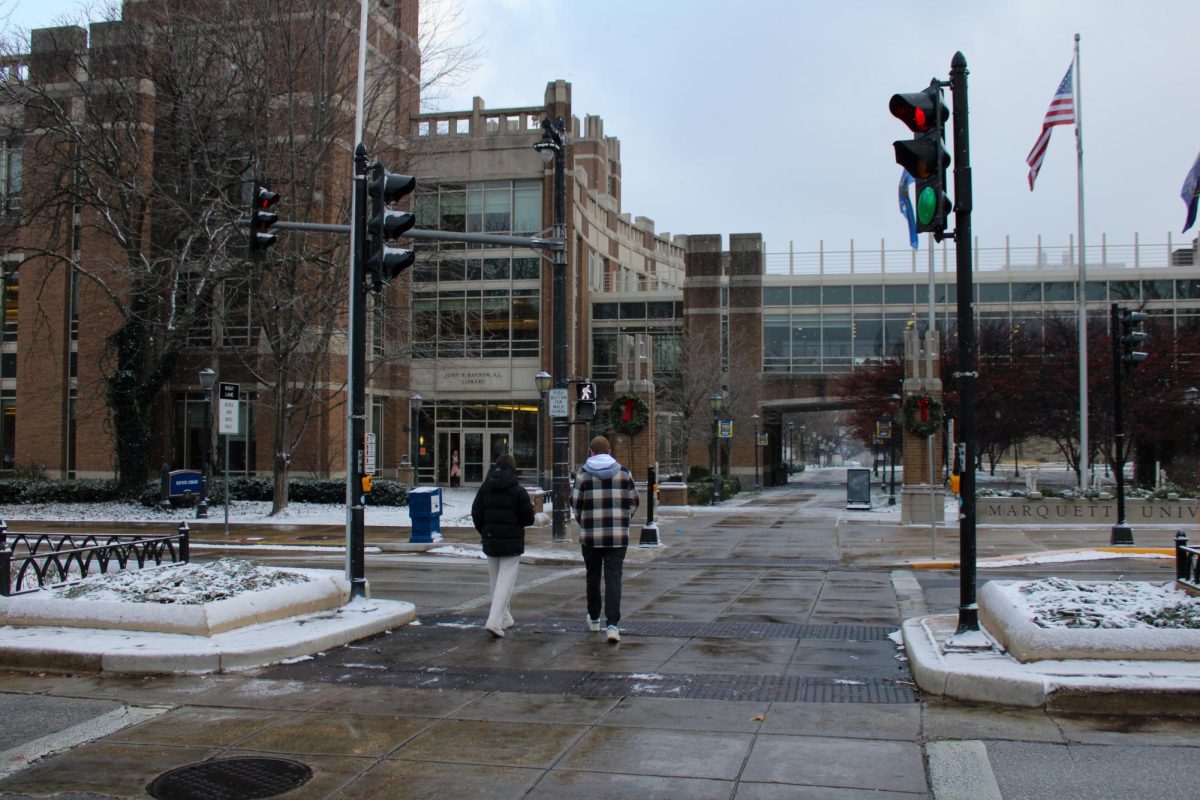University President the Rev. Scott Pilarz recently announced the members selected as part of the strategic planning coordinating committee and the five themes to guide the planning process: pursuit of academic excellence for human well-being; research in action; service, social responsibility and civic engagement; formation of the heart and soul; and stewardship of valuable resources.
As the strategic planning efforts begin to unfold, we would like to offer our input for each of these themes on what we see as important changes for Marquette’s future. These suggestions aren’t just for the planning committee; they’re for us students, too.
1) Academic excellence for human well-being: We believe the university should create a comprehensive policy for academic dishonesty and plagiarism that extends throughout all colleges. This policy should address questions as to what constitutes cheating and plagiarism and provide students with specific examples so that they have a clearer understanding of where they could go wrong. This will prevent cheating from slipping through the cracks should a student switch colleges and give Marquette the resources necessary to uphold our reputation for academic excellence.
We also suggest that each college focuses on providing a balance between holistic learning and teaching students how to get jobs after graduation. That way, students have access to the type of well rounded liberal arts experience that makes a Jesuit education distinct. We would hate to see lessons of value and educational integrity fall to the wayside in favor of resume building and networking. Career resources are necessary on campus, but we would like to see both sides of the collegiate experience represented.
Additionally, academic advising could be restructured to better serve students. Based on our and our peers’ experiences, we suggest making sure academic advisors are willing to actively advise and have more training and ability to collaborate with faculty across colleges.
2) Research in action: We encourage students to take advantage of research opportunities offered, and we encourage departments to continue to expand these offerings, too. There are many research opportunities currently in place, but as the majority of the Tribune staff is in the College of Communication, where we feel there could be more ample opportunities. These opportunities could — and should — be more widely publicized to students.
3) Service, social responsibility and civic engagement: We hope that students focus on Marquette’s service-oriented, Jesuit mission and appreciate the advantages of our urban location in Milwaukee, instead of complaining about not being in a “nicer” area of the city. We have the opportunity to truly change lives and better Milwaukee through the resources at Marquette and in the surrounding neighborhoods. We applaud the university’s emphasis on service learning programs and hope to see those programs continue to thrive.
Marquette could also benefit from a focus on social responsibility by making transparent decisions so that all students and members of the Marquette community are informed and can have a voice in the university’s future. “Cura personalis,” or care for the whole person, requires equality between students, faculty, staff and administration so that we can function harmoniously, looking out for our collective best interest.
4) Formation of the heart and soul: Marquette has done a great job recently in encouraging the growth of arts programs. This should continue. Students should take advantage of the practice, rehearsal and arts-focused places around campus that sometimes go largely unused. Places such as the Haggerty Museum and the Helfaer Theatre are incredible assets to our campus that more students should be aware of.
Health and wellness also plays into the formation of the heart and soul. The wellness centers on campus are valuable resources, and we hope that they can continue to improve and accommodate the student population of the future. We will follow the development of the Gender and Sexuality Resource Center with interest and hope it meets student needs that previously went unheard.
5) Stewardship of valuable resources: In the interest of “going green,” Marquette should continue its mission to create a more sustainable campus. One way to improve this would be to provide a recycling center for those students who live off campus. More important, we encourage students to actually use these recycling programs.
We greatly commend the strategic planning team for the value it has placed on garnering student input in forming these themes and goals. The listening sessions and representation from student organizations set a great foundation for this initiative. We are also pleased that two students have the opportunity to participate as committee members. We wonder, however, whether just one undergraduate and one graduate student are sufficient inclusion on a committee whose entire purpose is to make the university better for future students. The level of student inclusion in discussing and planning for the university’s future is something that should continue to be examined in this process.
Whether you are part of the planning committee or a student sitting in the Brew reading this paper between classes, we hope this has provided some food for thought on how we can work together to continue to improve Marquette.

